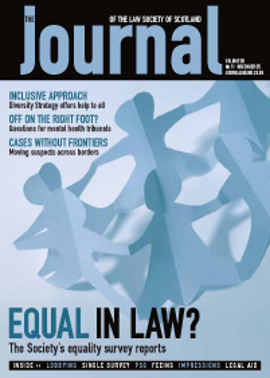Uncommon commencement dates

In an effort to provide greater clarity and awareness of future regulatory changes, the government last year introduced common commencement dates (CCDs) for domestic employment legislation. The idea behind them was to help with planning and budgeting for new measures.
The CCDs which have been put in place for domestic employment legislation are 6 April and 1 October. This year, 1 October saw a number of new provisions come into force including increases in the national minimum wage (from £4.85 to £5.05 per hour for those aged over 21 and from £4.10 to £4.25 for 18-21 year olds); changes to the legislation on industrial action notices and ballots; and a new definition of harassment which incorporates both sexual harassment (such as unwanted sexual advances) and harassment related to a person’s sex (but which need not be sexual in its nature).
In addition, a number of minor technical changes and corrections were made to the Employment Tribunal (Constitution and Rules of Procedure) Regulations 2004, and prescribed ET1 and ET3 forms became mandatory. You should note that these are different from the versions of the forms which were originally released last year and, should you fail to use them, your client’s claim or response will not be accepted by the tribunal.
So, having got over the flurry of activity surrounding 1 October, you would be forgiven for thinking you could rest easy until 6 April 2006 when the long-awaited, amended TUPE Regulations are expected. However, it is not to be.
Two new sets of legislation – relating to civil partnerships and disability discrimination – are due to commence in early December.
Recognising civil partnerships
When the provisions of the Civil Partnership Act 2004 (“CPA 2004”) come into force on 5 December 2005, same-sex couples will be permitted to form a civil partnership by registering as civil partners. Section 251 of the CPA 2004 amends section 3 of the Sex Discrimination Act 1975 in order to extend the marital discrimination provisions to those who have concluded a civil partnership. The CPA 2004 and the Civil Partnership Act 2004 (Amendments to Subordinate Legislation) Order 2005 (SI 2005/2114) work to ensure that those forming a civil partnership will have similar rights and responsibilities to married couples.
At the moment regulation 25 of the Sexual Orientation Regulations permits discrimination in the provision of benefits in favour of someone who is married. From 5 December 2005, access to a benefit by reference to marital status will still be permissible where the right to the benefit accrued, or the benefit is to be paid in respect of periods of service, prior to the coming into force of the CPA 2004. However, from that date it will only be possible to confer future benefits on married persons if those in civil partnerships are also offered the benefit. The new legislation will also extend the requirement to pay survivor pension benefits to the civil partner of a deceased scheme member.
Finally on the civil partnership provisions, the 2005 Order extends entitlement to paternity leave and pay, and adoption leave and pay, to civil partners, who will also be able to benefit from the right to request flexible working arrangements contained in the Flexible Working (Eligibility, Complaints and Remedies) Regulations 2002.
Illness as disability
On the disability discrimination front, the Department for Work and Pensions has confirmed that certain of the provisions of the Disability Discrimination Act 2005 will come into force on 5 December 2005. These include extending the Disability Discrimination Act 1995 (“DDA 1995”) to cover people with progressive conditions such as HIV infection, cancer or multiple sclerosis from the point of diagnosis; ending the requirement that a mental illness must be “clinically well-recognised” before it can be regarded as an impairment under the DDA 1995; and introducing for Part 3 of the DDA 1995 (i.e. access to goods and services, public authorities, private clubs and premises) a questionnaire procedure similar to that which already exists in Part 2 (employment and occupation).
Stubbed out
Finally, the smoking ban comes into force on 26 March 2006. This will require employers in Scotland to rethink the provision of smoking facilities for staff, and ensure training is given in order to minimise the risk of being found liable for the actions of employees.
After you have managed to deal with all of that, there should be just time before 6 April to draw breath and consider whether the government aim of greater clarity has been achieved.
Jane Fraser, Head of Employment, Maclay Murray & Spens
In this issue
- Changing perceptions
- A need undiminished
- Steps forward
- A better way to work
- Combatting the cross-border criminal
- Seen to be fair?
- The lobbying game
- A favoured model?
- A grand day out
- A window of opportunity
- Don't fall at the final hurdle
- Practice guideline: form of accounts and taxation
- Advice for All: the Society's response
- Matter for debate
- Divorcing the divorced
- Uncommon commencement dates
- Scottish Solicitors' Discipline Tribunal
- Website review
- Book reviews
- Still thumbs down
- Search and copy fees changing
- Common currency






